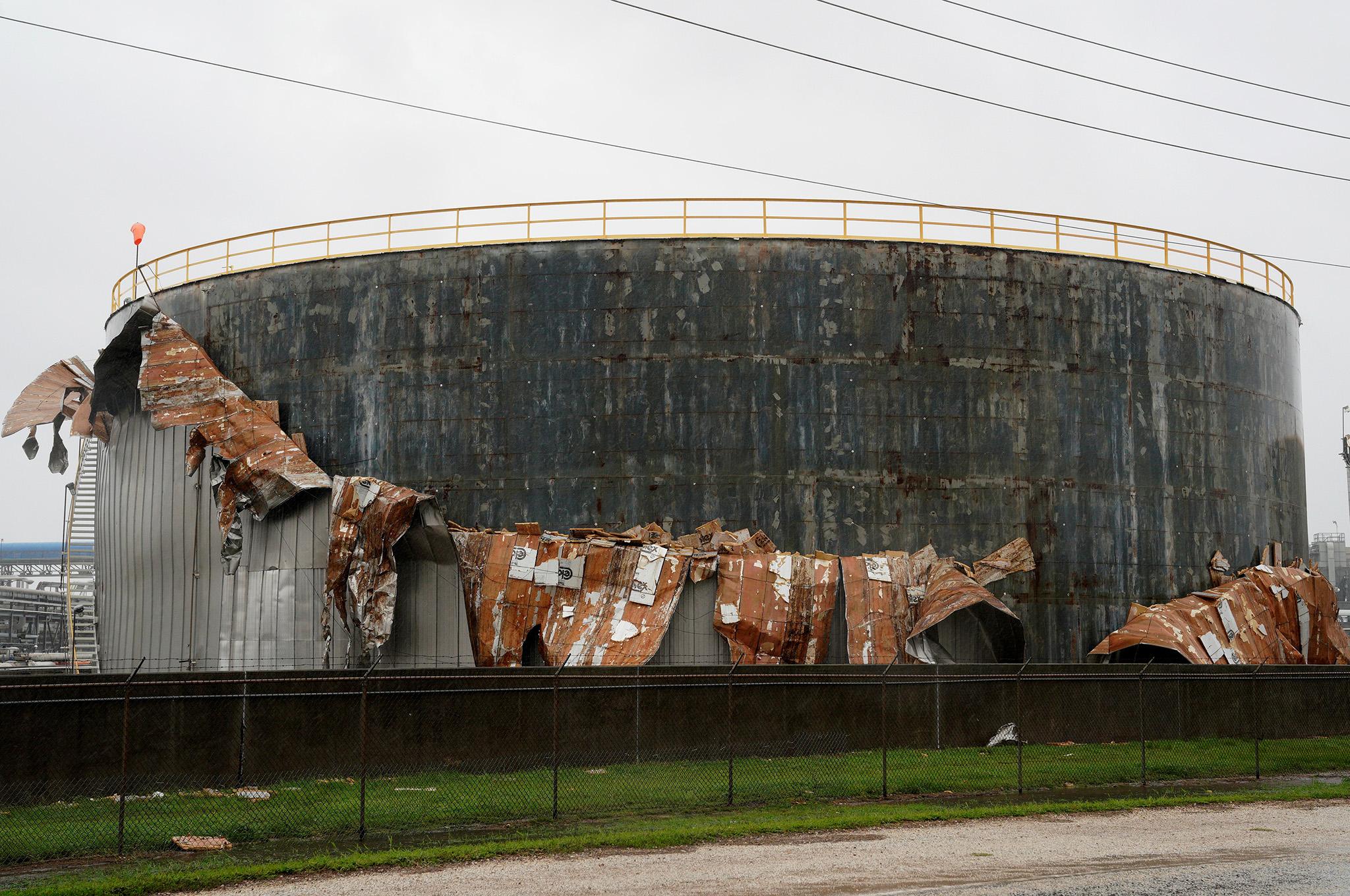Hurricanes dent oil output as Saudi Arabia cuts supplies
US refineries are predicted to recover by the end of September

Your support helps us to tell the story
From reproductive rights to climate change to Big Tech, The Independent is on the ground when the story is developing. Whether it's investigating the financials of Elon Musk's pro-Trump PAC or producing our latest documentary, 'The A Word', which shines a light on the American women fighting for reproductive rights, we know how important it is to parse out the facts from the messaging.
At such a critical moment in US history, we need reporters on the ground. Your donation allows us to keep sending journalists to speak to both sides of the story.
The Independent is trusted by Americans across the entire political spectrum. And unlike many other quality news outlets, we choose not to lock Americans out of our reporting and analysis with paywalls. We believe quality journalism should be available to everyone, paid for by those who can afford it.
Your support makes all the difference.Oil markets were mixed on Friday, with Brent crude supported by expectations that Saudi Arabia could cut its October supplies, while US crude was weighed down by refinery outages due to damage from Hurricane Harvey, which dented demand.
Focus was shifting to three other hurricanes that are currently tearing through the Caribbean and Gulf of Mexico.
Brent crude futures were up 8 cents at $54.57 a barrel at 7:30AM GMT, with the benchmark for international oil prices earlier marking its highest since April at $54.79 a barrel.
Saudi Arabia will cut crude oil allocations to its customers worldwide in October by 350,000 barrels per day (bpd), an industry source familiar with Saudi oil policy told Reuters on Thursday.
US West Texas Intermediate (WTI) crude futures were at $48.98 barrel, 11 cents below their last settlement.
Traders said that the dip was a result of low refining activity following Hurricane Harvey, which hit the US Gulf coast two weeks ago and knocked out almost a quarter of the country’s huge refinery industry, cutting demand for crude oil, refining’s lifeblood.
But as the refinery sector gradually recovers, so is its crude processing.
“Most refineries are restarting and we expect a near-full recovery by month-end,” US investment bank Jefferies said.
Harvey’s impact was also felt in oil production. US oil output fell by almost 8 per cent, from 9.5 million barrels per day (bpd) to 8.8 million bpd, according to the Energy Information Administration.
Port and refinery closures along the Gulf coast and harsh sea conditions in the Caribbean have also impacted shipping.
“Imports (of oil) to the US Gulf Coast fell to levels not seen since the 1990s,” ANZ bank said.
Traders said it would take weeks for the US petroleum industry to return to full capacity, and that under the current conditions it was difficult to identify fundamental market trends.
“The data for this week and next will be taken with a grain of salt as the underlying trend will be obscured by the effects of the hurricane,” said William O‘Loughlin, investment analyst at Rivkin Securities.
Even as the oil industry continues to grapple with the fallout from Harvey, a much bigger Hurricane was lashing the Caribbean islands and heading for the United States.
Hurricane Irma, which has become one of the biggest storms ever measured - picking up the Twitter hashtag #irmageddon - on Friday hit the Dominican Republic and Haiti, heading for Cuba and the Bahamas. It is predicted to hit Florida by Saturday.
The US National Hurricane Centre (NHC) said that Irma was still a Category 5 hurricane, with wind speeds of 160-185 miles per hours (260-295 km/h).
On Irma’s heels, Hurricane Jose is heading for the Caribbean Leeward islands, which have just been devastated by Irma, with wind speeds of 120 mph (195 km/h).
With storm Katia about to hit the Mexican Gulf coast, there are three major hurricanes currently active in the region.
Reuters
Join our commenting forum
Join thought-provoking conversations, follow other Independent readers and see their replies
Comments